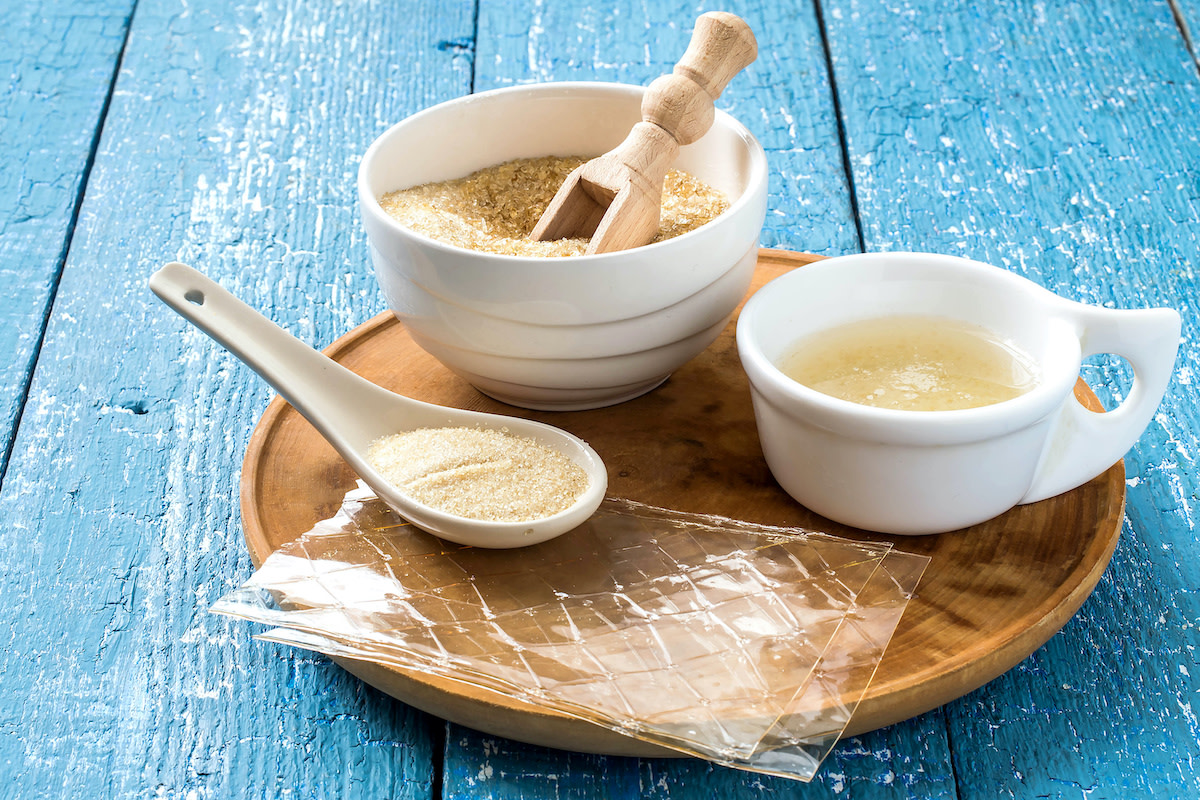Agar vs. Gelatin: Can You Substitute Agar for Gelatin?
Written by MasterClass
Last updated: Nov 10, 2021 • 2 min read
Agar and gelatin serve similar purposes as gelling agents and thickening agents in various recipes. While gelatin is made from animals, agar is made from red algae, which makes it a popular vegetarian substitute for gelatin.
Learn From the Best
What Is Agar?
Agar, also called agar-agar and kanten, is a jelly-like substance made from red algae. Agar-agar jelly has been used for centuries in Asian cuisines. Its gummy, chewy texture at room temperature makes it a popular gelatin substitute because it involves no animal products. Agar-agar is considered halal and pareve.
Agar-agar powder and agar-agar flakes can be found at health food stores and at Chinese, Japanese, and Korean grocery stores. While it has minimal health benefits, agar contains no gluten, carbohydrates, cholesterol, or calories. You can use agar in mousse, pudding, custard, ice cream, and even delicate dishes like panna cotta and cheesecake.
What Is Gelatin?
Gelatin is a gelling agent and thickening agent derived from the skin, bones, tendons, and ligaments of animals like cows, pigs, and horses; essentially, it’s concentrated animal collagen. Gelatin is sold in powdered form in grocery stores. It is partially derived from bones, which means gelatin powder also contains measurable amounts of calcium.
Gelatin is a signature ingredient in Jell-O. It is also found in leading brands of marshmallows and many types of puddings and custards.
Can You Substitute Agar for Gelatin?
Agar can be substituted for gelatin. Along with fruit pectin, it is a leading vegetarian substitute for gelatin in a wide array of recipes. However, before closing the books on the agar vs. gelatin debate, take note of the following quirks about agar.
- Agar is more potent than gelatin. Mixing one teaspoon of agar powder (or one tablespoon of agar flakes) with one cup of liquid will produce a reliable gelling agent. By contrast, you would need eight teaspoons of gelatin powder to produce a similar consistency.
- Agar is gummier than gelatin. Although it can adequately serve both purposes, agar works better as a gelling agent than a thickening agent. Agar sets more firmly at room temperature than gelatin. If you aren’t a strict vegetarian, consider using gelatin in softer foods like mousse and panna cotta. You may also have better results using gelatin or cornstarch as a thickening agent in soups, rather than agar.
Want to Learn More About Baking?
Become a better baker with the MasterClass Annual Membership. Gain access to exclusive video lessons taught by the world’s best, including Dominique Ansel, Joanne Chang, Gordon Ramsay, Chef Thomas Keller, Mashama Bailey, and more.
